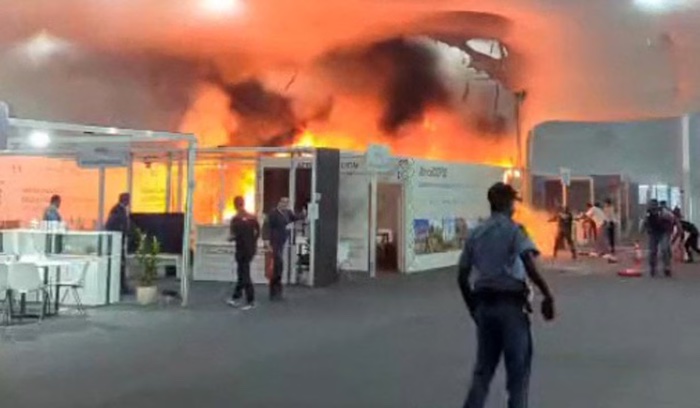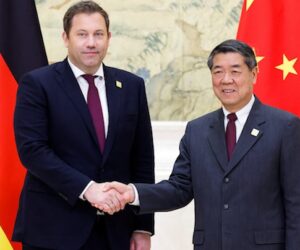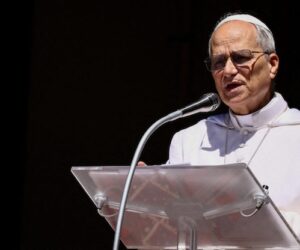Negotiations at the COP30 climate summit in Belém, Brazil, were unexpectedly thrown into disarray on Thursday after a fire broke out inside the venue, forcing the evacuation of thousands of delegates at a critical moment in the talks.
The incident occurred just as negotiators were working against the clock to secure a deal aimed at strengthening global climate commitments. With less than 24 hours to the scheduled close, UN Secretary-General António Guterres had earlier urged participating nations to deliver an ambitious outcome, especially on the contentious issue of transitioning away from fossil fuels.
Security footage showed flames erupting at an exhibition pavilion shortly after midday, spreading rapidly along an internal fabric lining before being extinguished. Thirteen people were treated for smoke inhalation. Fire officials said the blaze likely originated from electrical equipment—possibly a microwave—and was contained within six minutes.
Delegates were evacuated swiftly as security teams formed a barrier across the hallways. Negotiations are not expected to resume until Friday morning, though behind-the-scenes consultations between Brazil’s COP30 presidency and key negotiating blocs may continue overnight pending safety clearance.
Before the disruption, Brazil had circulated a draft proposal outlining elements of a possible agreement. Notably, the text did not include a roadmap for transitioning away from fossil fuels—an omission that has already drawn scrutiny. Instead, it called for tripling climate adaptation financing by 2030 but left unclear whether this would come from wealthy governments, development banks, or private-sector contributions.
Some delegations reported seeing the draft only moments before the evacuation; others said they had not received it at all.
As with previous COP summits, final negotiating texts are typically refined among small groups before being presented to all countries for approval. But deep divisions remain unresolved.
The talks have become gridlocked over two central issues: the future of fossil fuels and the delivery of climate finance. Brazil, supported by dozens of countries across both developed and developing blocs, is pushing for a clear global roadmap for transitioning away from fossil fuels. Some major producers, however, remain resistant.
Guterres expressed optimism that compromise is still possible, despite entrenched positions.
On climate finance, wealthier nations have balked at committing to a guaranteed adaptation funding target—an issue that has heightened mistrust among developing countries. Many are frustrated by previous unmet pledges, including the widely questioned $300 billion finance commitment announced at COP29.
Adding to tensions is the United States’ retreat from international climate cooperation under President Donald Trump, which has complicated negotiations on long-term financing.
Pacific island nations, already facing devastating climate impacts, warned that failure is not an option. “Our people are losing their lives and livelihoods from storms of unprecedented strength,” said Steven Victor, Palau’s Minister of Agriculture, Fisheries and the Environment. “If we leave Belém without a transformative outcome on adaptation for the world’s most vulnerable, it will be a failure.”
European representatives acknowledged the importance of adaptation financing but said they lacked authority to sign onto new targets.
With the summit’s deadline looming, the unexpected fire has added new urgency—and uncertainty—to an already fraught negotiation process.
Melissa Enoch
Follow us on:








